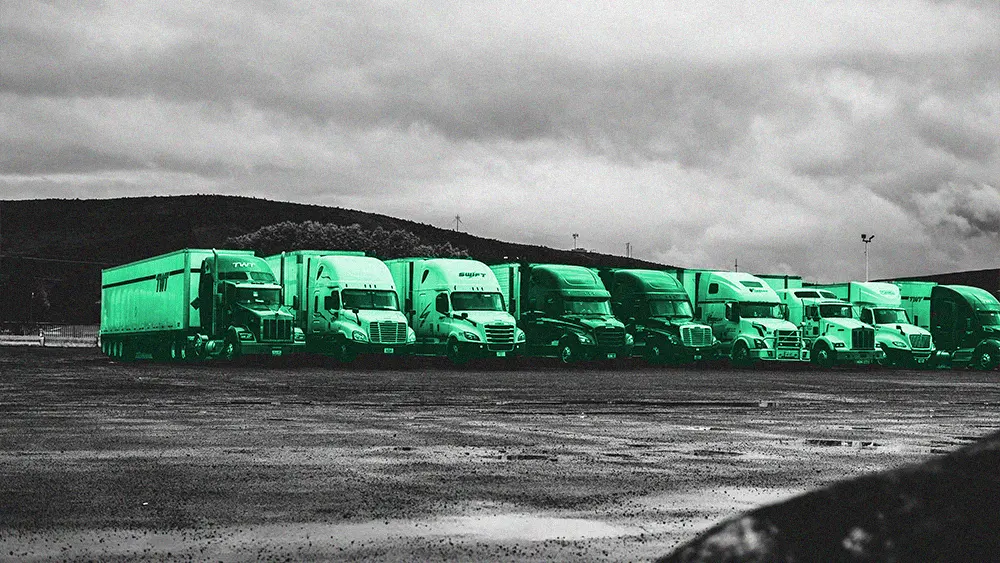Manufacturing and Logistics
Factoring keeps small carriers in business as freight recession drags on
Tuesday June 17, 2025

Rob McCutcheon, VP of Strategy & Growth at TAFS, warns that without freight factoring, small trucking entrepreneurs face a struggle for survival, risking greater market consolidation.
The freight industry is enduring its longest rate recession in 25 years; while cautious optimism for improvement exists, confidence dictates market movement.
Fraud emerges as an industry-wide scourge, demanding unified action from all stakeholders.
Without factoring, it would be incredibly difficult for an entrepreneur to enter the trucking market and succeed. The big companies would just get bigger.

Rob McCutcheon
VP of Strategy & Growth, TAFS
Trucking may be the lifeblood of commerce, but for independent operators, cash flow is the oxygen—and it's often in dangerously short supply. With expenses outpacing delayed payments, freight factoring is often the only thing keeping small carriers on the road.
Rob McCutcheon, VP of Strategy & Growth at TAFS, is tuned in to the daily pressures that shape the lives of independent trucking operators.
Stuck in neutral: "Without factoring, it would be incredibly difficult for an entrepreneur to enter the trucking market and succeed. The big companies would just get bigger," says McCutcheon. "We had the same hopes this time last year, that rates would rise by the end of 2024. It just didn’t happen." After peaking during the pandemic, rates began falling in late 2022 and have since flatlined. "Since last summer, freight rates haven't changed a whole lot. They've remained very even." He calls it the deepest, longest freight recession in at least 25 years. And with trade uncertainty and tariffs still looming, confidence remains low. "Trucking companies are not going to come into the market if they don't have confidence that the market is going to get better," McCutcheon says.
Factor it in: "Essentially, we're trying to speed up their cash flow," explains McCutcheon. With most shippers paying on 30-day terms (or longer), small trucking companies are often left in the lurch. "You have insurance due, you have fuel to pay for," he says. "For one truck in a month, you can have expenses that are $5,000 to $10,000." Against that math, the appeal of factoring becomes clear. McCutcheon estimates three out of five trucking companies rely on it just to stay in motion. "Every company in trucking has to worry about cash flow because pay terms are long and bills are very, very high."
Since last summer, freight rates haven't changed a whole lot. Trucking companies are not going to come into the market if they don't have confidence that the market is going to get better.

Rob McCutcheon
VP of Strategy & Growth, TAFS
More than money: "When you're a small trucking company, you don't have the same access to pricing that the big guys do," McCutcheon says. That’s where scale comes in. With thousands of clients, TAFS uses its leverage to negotiate discounts on essentials like fuel, tires, and maintenance.
"We can go to a tire company and say, 'Hey, we’d like to provide better pricing to our small trucking companies,'" he explains. That purchasing power extends to insurance partnerships and even small business loans—crucial for covering upfront costs like down payments or funding a chance to grow. "That’s one of our unique benefits," McCutcheon notes. "We’re here to help them seize those opportunities."
Fraud on the freeway: "Fraud is a huge problem, and it’s actually turned into its own industry within the trucking market," McCutcheon says. With tech adoption lagging and vulnerabilities everywhere, bad actors are moving in fast. "Some of these fraud cartels are overseas, some are right here in the U.S. They go where they see the biggest advantage."
The damage isn’t theoretical. "All it takes is one hit to be out of business," McCutcheon warns. No one’s safe—not brokers, not carriers, not even factoring companies. "We've seen several trucking companies go out of business due to fraud or claims." Still, he’s hopeful. The issue is finally getting the attention it deserves, and McCutcheon sees momentum building around prevention. "I think it’s become much more of a priority for all of us to work together to stop this."
In it together: "At the end of the day, we succeed when our carriers succeed," McCutcheon says. That partnership mindset drives TAFS’ broader strategy, where education plays a central role. "Anything we can do to educate and help the industry, we're happy to do—whether it's jumping on a phone call to help them with a broker situation or help them save some money somewhere," he explains. "That's really our goal: to build relationships."